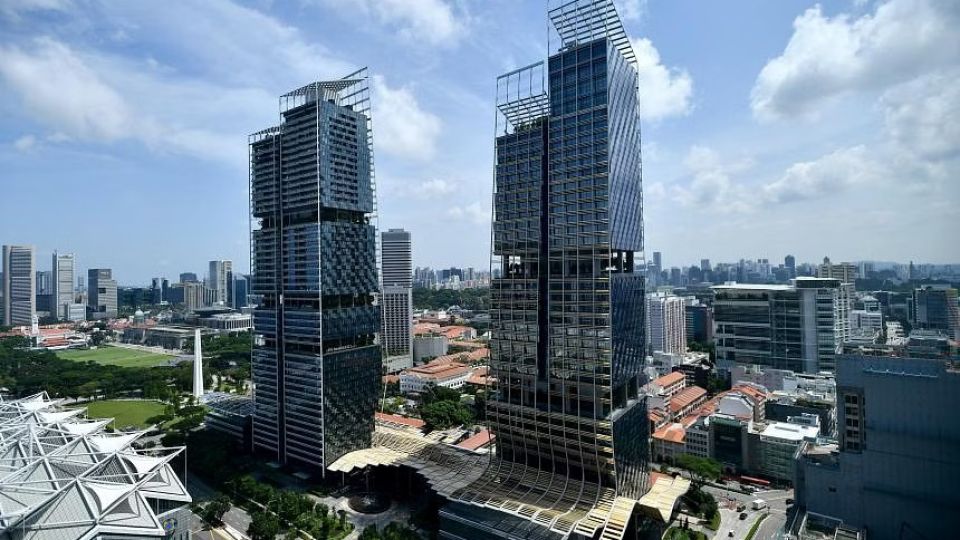June 7, 2024
SINGAPORE – A water-repellent coating for air-conditioners’ cooling coils which could help to reduce energy consumption will be trialled at South Beach Tower, a hotel, office and residential complex in Beach Road.
It is one of two initiatives that aim to reduce the energy usage of air-cons in offices and hotels which will be piloted at the building, the Building and Construction Authority (BCA) said on June 6.
The projects were awarded about $1.2 million in grants under BCA’s Green Buildings Innovation Cluster 2.0 programme, a research, development and demonstration programme for energy-efficient technologies and innovations.
Air-conditioning can account for about half of total energy usage in such buildings, and the authority is supporting research and innovation solutions that enhance the efficiency of cooling, it added.
On the water-repellent coating, BCA said a typical coil in an air handling unit – a large commercial air-con – cools air in a way that results in water condensation on its surface.
As existing materials for cooling coils are hydrophilic – meaning that they attract water – the condensed water forms a thick and continuous layer that covers the coil’s surface.
This leads to the cooling coils being less efficient, as well as dust accumulation and micro-organism growth, affecting the quality of cooled air and increasing maintenance cost.
A water-repellent material would improve the coil’s heat transfer efficiency, and can be easily implemented for existing and new equipment, said the authority.
The coating will be tried out at the office premises of South Beach Consortium and OCBC Property Services in South Beach Tower.
Research was conducted by NTU, air-conditioning contractor Powen Engineering, South Beach Consortium and OCBC Property Services.
In response to queries, an NTU spokesman said past efforts to employ such coatings on aluminium alloys and copper – common materials used in cooling coils – had failed to repel water droplets.
The coating that was developed had the correct micro- and nanostructures to repel water.
With the coating, BCA expects energy consumption of an air handling unit to be reduced by more than 30 per cent, and energy use of a chiller – which produces chilled water for the air handling unit – to be decreased by 12 per cent.
The second initiative, which will also be trialled at South Beach Tower, is a monitoring system.
The measurement and verification toolkit, developed by building consultancy firm Building System and Diagnostics, will measure the airside system, which handles the flow of air within a building.
It consists of sensors and meters that measure air temperature, among other things, and could lead to energy savings of 25 per cent, BCA said.
It added that current monitoring systems that accurately measure and verify the efficacy of airside systems are costly to install, but the toolkit that will be trialled is expected to be more cost-effective.
Ms Samantha Tan, South Beach Consortium’s general manager, said that with the firm pushing the boundaries of environmental sustainability, she hopes other building owners will recognise the benefits of green buildings, which include lower utility bills and benefits to the health and well-being of its occupants.
BCA said that, to date, the Government has committed $117 million to the Green Buildings Innovation Cluster programme, which supported the research, development and demonstration of more than 80 innovative technologies from over 70 firms.
Second Minister for National Development Indranee Rajah said BCA’s best-in-class green buildings in 2023 achieved a 71 per cent improvement in energy efficiency over 2005 levels, placing the authority on track to reach its 80 per cent target under the Singapore Green Building Masterplan by 2030.
“Best-in-class” refers to excellence in a range of disciplines including design, construction and operation.
“Further research and development efforts will be needed to develop innovative solutions that push the boundaries of building energy efficiency,” Ms Indranee said in her speech at the Singapore Green Building Council gala dinner, held at the Orchard Hotel Singapore on June 6.


